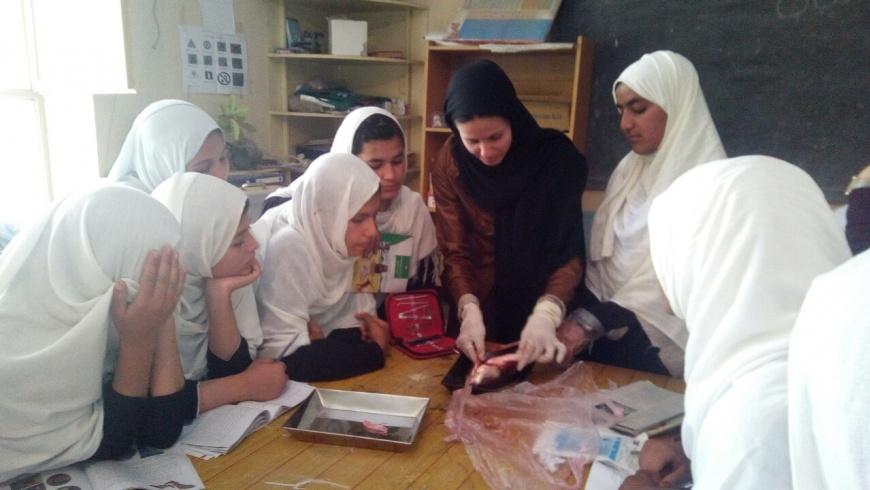Teach For Afghanistan is Tackling the Country’s Girls’ Education Challenges Inside and Outside of the Classroom

In late 2017, Afghanistan’s education system made headlines with reports highlighting how the country is among the most difficult places for girls to be educated. Both a Human Rights Watch report and ONE’s index described the complex challenges that prevent the majority of the country’s girls from attending or completing school. While significant progress in education has been achieved in recent years, decades of conflict have had a damaging impact on the sector, and in turn the development of the country. Afghanistan has one of the highest levels of gender disparity in primary education, and retains one of the lowest literacy rates in the world—only 39% of the population reaches literacy, and of that segment just 13% are female.
Despite these lowest literacy obstacles, there are bright spots on the horizon. Teach For Afghanistan is working to change the status quo, supporting both female and male Fellows (teachers) to break down the barriers standing in the way of girls attaining a quality education. Because boys and girls study separately in government schools, there is an urgent need for more female teachers. One of the program’s top priorities is the proactive recruitment of female Fellows and the training and development of Fellows of both genders in the importance of girls’ education. In September 2017, the program placed its second cohort of 120 Fellows—of which 75 are female—as full-time middle and high school teachers in 46 schools across five districts in the provinces of Nangarhar Parwan. In Teach For Afghanistan’s 2016 cohort, 50 of the 80 Fellows were female. CEO and Founder Arman Rahmatullah was recognized by the Malala Fund’s Gulmakai Network as a champion for girls’ education, and the initiative is supporting the organization.
The program focuses on females because women can play an important role in the development and rebuilding of the country. One of the key challenges is early child marriage, which disproportionately affects girls.
“When girls are well educated, they will serve society as writers, doctors, parliamentarians, and they can improve the economic situation,” says Said Habib Abassi, an English language instructor for Teach For Afghanistan Fellows and a girls’ education advocate. Women pursuing these professions are rare in Afghanistan, he explained, because child marriage coupled with low expectations of girls prevents them from staying in school. “They don’t reach high school and university,” Said Habib says, “because higher education is not for women.”
In addition to early child marriage, girls (especially those in adolescence) face numerous obstacles to accessing a quality education. Lack of security is a major issue, especially in Jalalabad City, where schools—girls’ schools in particular—are frequent targets of attacks by militant groups. Girls also encounter daily street harassment on their way to school. Given these and other concerns, many families are reluctant to let their daughters go to school.
“If the families do not support their girls, they will not go to school,” Said Habib says, emphasizing the pivotal role of men in the effort. “Males must support their female family members. We use examples of Malala and female role models in Afghanistan like [women’s rights activists] Shukria Barakzai, and Malalai Joya. Look where they are now.”
Teach For Afghanistan, alongside other civil society organizations, is attempting to change mindsets, especially around child marriage, by working with parents and religious groups. Once a month, the organization holds meetings with parents to talk about the role women can play in society and also raise awareness among women about the rights they are entitled to. At the same time, male and female Fellows are having these discussions with their students. While lasting change will take time, Teach For Afghanistan is seeing a gradual shift in attitudes toward education and women’s empowerment through their community engagement approach.
Through Teach For All’s Global Girls’ Education Fellowship, Said Habib and several Teach For Afghanistan Fellows have connected with peers from network partners in countries such as India and Nepal who face similar challenges. The Fellowship has given them the opportunity to share learnings, solutions, and practices with each other that are proving successful and can be adapted locally. Learn more about Teach For Afghanistan and the Girls’ Education Fellowship.



